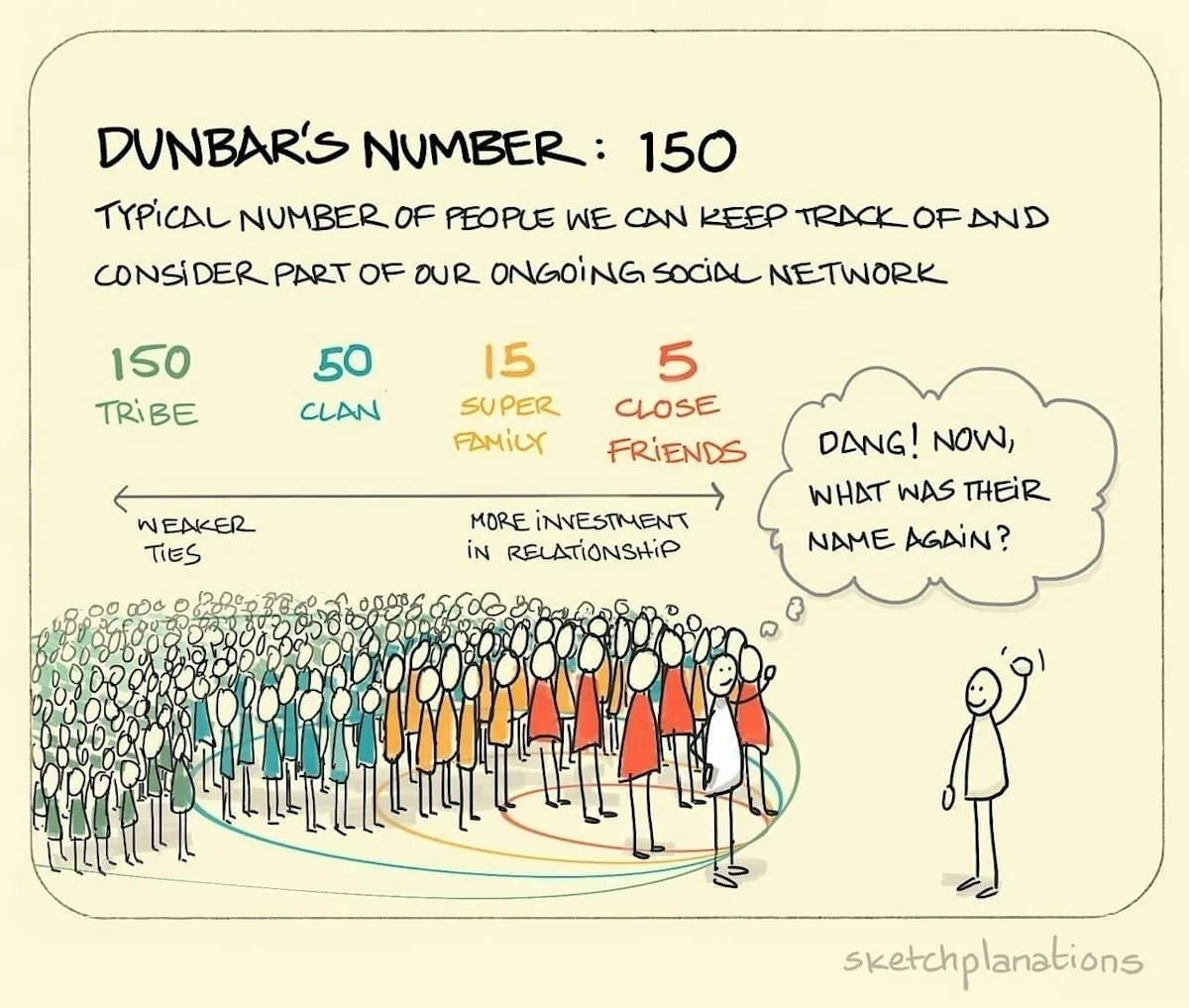Dear Coddling Movie Community,
First off, this substack turns one-year-old on February 21! Thanks for turning it into such a vibrant community — there are nearly 10,000 of us!
Now for today’s post.
In our recent “What should we tell Gen A about college?” thread, Vic King linked to a piece he’d just written. I enjoyed it so much that I got his permission to run it right here for you good people.
As you’ll see, Vic has learned a lot during his twisty-turny life story.
He’s a father of three daughters who builds websites for businesses from his family farm on Maryland's Eastern Shore. I encourage you to check out his business and his eclectic blog where you can also see his mighty beard.
I know you’ll enjoy his essay.
All the best,
Ted
I was invited to be part of a panel about college choices at my alma mater. Not knowing how much time I’d have to share, I decided to write up my thoughts.
I’ve got strong opinions about this. Why should you care what I think?
I’ve plowed a lot of ground with my chin.
Twenty one years ago, I was the valedictorian of my class, with an almost-perfect SAT score. I basically had my pick of schools. But I screwed up, and here’s how:
I made dumb college choices.
I turned down a full ride at Georgetown and a couple other top tier schools to go to NYU, cause I like the vibe better. Got distracted in every way - socially and academically. Dropped out two years later with almost $100,000 in debt. (That was 20 years ago; NYU’s costs have doubled since then.) Spent the next ten years paying that off.
I took a year off, wandered around the east coast reading the gospels and asking God what I should do with my life. Worked at my uncle’s cabbage farm. Started working on a framing crew in the day, painting houses on the side, and went back to college at Salisbury University at night, somehow managing to finish in two more years with no added debt and a totally different degree.
Worked for 8 years as an ESL teacher in public schools outside of Baltimore while going to seminary at night. Worked for 8 years as a chaplain at a mission downtown with guys coming out of addiction and homelessness. Helped guys (who’d ruined their lives with drugs and alcohol) rebuild their lives, and within a year or two, some of those guys were making more than masters-degree me, at skilled trades like welding and CNC machining. (Maybe college isn’t for you. Seriously.)
Meanwhile on the side, I was building a freelance web design business, a company of one that’s now my main thing. I work for myself, and my wife and I homeschool our girls from our family farm.
I became more and more screen-addicted and vulnerable to manipulation.
Oh, and I’ve spent the last 10 years undoing the damage I did to my brain and my privacy in the decade prior.
I’ve always been temperamentally biased towards being an early adopter. I was one of the first Gmail users; I got an early invite from a buddy who worked at Google. I was also probably one of the first 10,000 users on Facebook, because I was at NYU when Zuck launched it from Harvard, and we were one of the first schools to get access. But earlier isn’t always better. I remember regularly staying up ‘til 3am on Facebook during my sophomore year (back when it was thefacebook.com). Meta has only gotten more powerful, and it took me over a decade to escape its orbit.
What none of us knew back then, but is undeniable now, is the damage social media can do to your developing brain, and how the personal data you give away can be used to manipulate you. (Your brain isn’t done developing until around age 25, by the way.)
I was also exposed to porn at what was, at the time, a relatively early age, although now the average age is even earlier. I was one of the last few years of kids who didn’t have smartphones in middle school, high school or college — the first iPhone didn’t come out until I was almost through undergrad. (You can see some of the phones I had in the Mobile Phone Museum.) I had a hard enough time kicking porn in my 20’s, and it would’ve been even more difficult if I’d developed a smartphone-based porn habit in my teens.
If porn has become part of your story, don’t wait to break free. I suggest starting with a non-judgmental self-assessment and then check out this book and course or one of these groups.
I had an iPhone as my phone for 12 years, and ditched it a few years ago for a flip phone made by Mennonites. If someone like me, who makes six figures a year working via the internet, can live without a smartphone, so can you. If that feels like a bridge too far, you can dumbify your smartphone with custom launchers and apps like Freedom, or get a smartphone running a custom operating system like Wisephone, Light Phone, Punkt, Gabb, and more.
The habits I’ve shifted would require another post to expound, but they’re not complicated: eating and sleeping better, finding ways to exercise that I enjoy, and regular rhythms of scripture, prayer, journaling, and silence.
Today, I have freedom. Next month, we’re just picking up our whole family and going to Florida for the whole month, renting a house and hanging out with some friends of ours who live down there. I’m not a millionaire, but I’m a free man.
Here are my 3.5 thoughts on how you avoid my mistakes and set yourself up for success from the jump.
1. Don’t choose a college for the vibe or location.
Half of the colleges in this country are gonna be gone in ten years. I’m not kidding. The higher education bubble is bursting. I hope someone has told you this already. In general, on average, many of the mid-tier liberal arts colleges are gonna be gone, shut down or merged into the remaining winners.
It’s the schools at the two ends of the spectrum that are going to survive. State schools and community colleges on the one end, and the elite institutions like the Ivys and the MITs and Stanfords on the other.
Here’s the takeaway: if it’s experiences you want, there are 1,001 better, faster, cheaper ways to get them than college.
If you like a place, move there and live there for a year, work a job, and grow up. Go serve overseas for 6-12 months with YWAM or another volunteer organization. Take a gap year and figure out what you wanna do, then go to the school that’ll actually help you do that. Don’t rack up stupid debt because you like where a school is located or the amenities they offer.
Schools are mainly good for two things: the credentials and the network.
The actual credentials it gives you, and what those enable you to do. And the network it gives you access to, both by the people that you get to know while you’re at the school and the alumni network that you’re connected with. In other words: the doors it opens for you. Those are the specific benefits that a specific degree from a specific school confers; the actual knowledge gained during your studies is entirely up to you.
2. Actually Learn to Write and Think for Yourself.
Your generation is at a unique inflection point. Unlike the kids who came a few years before you, and perhaps unlike the kids who will come a few years after you, you will be able to mostly cheat your way through undergrad writing assignments using generative AI. If you want.
And that would be a mistake. Because here’s the thing about writing: writing is thinking. If you can think well, you can write well, if you can write well, you can think well. *The future belongs to those who can think and write well. * If you short circuit the development of that skill, you’ll be stuck thinking stupidly. And you’ll be steered by those who can think and write more clearly and persuasively than you can.
If you want to learn to write, all you have to do is read like crazy and write like crazy.
Read good books, mostly ones that have lasted long enough to haven been written by people who are now dead. You can cover the basics in a year, reading 35 pages a day.
There’s a book called The Writer’s Practice by John Warner: it’s the best book I know for learning how to write. You don’t need anyone’s permission, just get it and start doing the writing experiences in it and you’ll become a better writer. Learn to think and write clearly, in your own voice. The future belongs to those who can think and write clearly.
RELATED
2.5. Avoid Brain Rot and Manipulation.
This point is a bridge of sorts between 2 and 3, as it relates to them both. To think and write clearly, you need to avoid brain rot at all costs.
Beware social feeds
Beware, beware the algorithmic feeds. They will feed you the lowest common denominator. It’s a race to the base of the brainstem. Whatever will arouse you or enrage you or terrify you the most, is what you will get more and more of. And it’s not a fair fight. The supercomputers on the other side of that screen are learning more and more about you, and more and more how to steer you this way or that on behalf of the highest bidder.
If you want a competitive advantage, be one of the few that does not spend hours every day mindlessly thumbing through schlock. Set strict time limits for yourself, or better yet, uninstall that crap.
Spend that time in direct conversation with other humans. In person, by phone, by text, developing your voice and learning from good books and other forms of human knowledge that can change you for the better.
Ditch Google
Social media use is the biggest way you open yourself up to manipulation and give away tons of personal data. Outside of Big Social, the 3 biggest ways that you give away huge amounts of personal data that can be used to manipulate you are:
your email,
your search engine, and
your web browser.
It’s the unholy trinity of data leakage. And for most people, all three of those things feed back into Google, via Gmail, Chrome and Google Search.
If you change your defaults to Duck Duck Go for search and browser (or Firefox for browser), and if you set up your personal email on Proton Mail instead of Gmail, you’ll leave much less of a data trail and be harder to manipulate.
3. Build Your Network of Advisors & Cheerleaders.
The future belongs to those who have a direct network of people they can ask for advice and help.
This is true across any and every domain. It doesn’t matter if you’re looking for a job as a mechanic at a car dealership, or as a marketing executive at a multinational company. The fastest route to good work is knowing people who know you and are rooting for you. If your only line of connection to someone is through a social network, it’s mediated through a third party that can change or disappear at any time.
And not on social media…
Who knows if the TikTok ban will happen this month? But it’s a great reminder that every connection that you only have through a social network is not a direct connection. If that network goes away or changes tomorrow, you’ve lost that connection.
Unless you had that person’s phone number or email, you don’t have a direct connection to that person. Be deliberate about building your relational network outside of social. I’m talking about texting people, calling people, emailing people.
This isn’t just for your besties. We humans naturally have multiple circles of relationships, and the outer rings are important too.
Extra Credit: Start an Email Newsletter
If you’re particularly ambitious, start to build an audience outside of social, on open networks like Micro.blog or Substack. Start a blog and email newsletter combo.
I think every one of you should start one, and all of you should subscribe to each other’s, and get as many of your friends as you can to subscribe to each other’s. Write updates once a month or quarterly about your life and what you’re doing. And as you figure out your career path and adulthood, keep writing and keep growing.
Substack or Micro.blog may not last, but guess what? Unlike Big Social, they’re open platforms, which means if they’re dying someday down the road, you can download your whole subscriber list and migrate it onto whatever the next new open platform is. My point is: if you start building your relational network now, you’ll have a huge head start.
Bonus Points: Buy the Best Available Domain of Your Name
And even if you don’t do that, see if the .com version of your full name is available, and buy it and keep it, even if you don’t set up a blog or a personal website on it yet. It’ll probably come in handy down the road.
The domain victorking.com wasn’t registered until 2013; I was already building websites by then, and should’ve bought it while it was available but didn’t. Instead, I went with the weirder and much shorter vic.ooo. If the .com version of your name isn’t available, try the .co or another simple domain ending.
OK, brief recap:
1. Don’t choose a college for the ‘experiences.’
There are cheaper ways to get ‘experiences.’ Take a gap year and serve or work somewhere while you seek direction for your next move.
2. Build a habit of reading freely and writing clearly.
Not because it’s assigned. Because you want to become a better thinker, writer, and human being.
2.5 Opt out of the manipulation machines.
Eliminate algorithmic feeds from your life, and replace passive screen time with live communication with other humans, whether in person or through calls.
3. Build your real-life network.
Cultivate relationships through direct interaction, and perhaps the occasional email newsletter. Your relationships are a major factor in your career success, and a stronger predictor of lifelong happiness (and physical health!) than anything else.
These are my thoughts. Take ‘em or leave ‘em. Thanks for letting me share.










Thanks for sharing my essay, Ted!
Learn a trade and take survey humanities and art courses at the nearest community college. Read and write on Substack. 😎